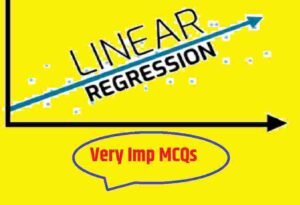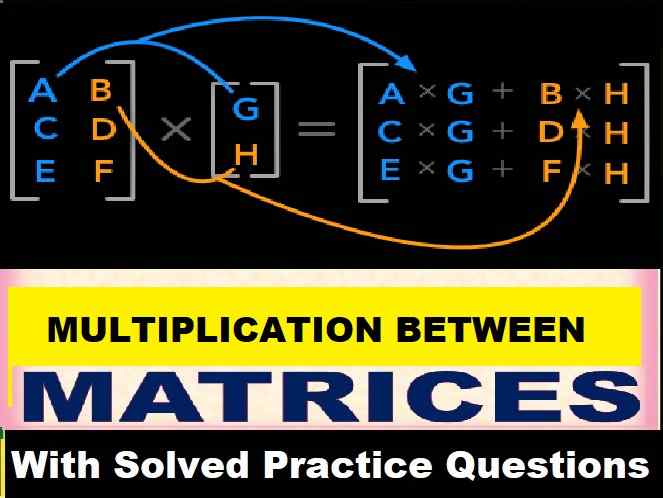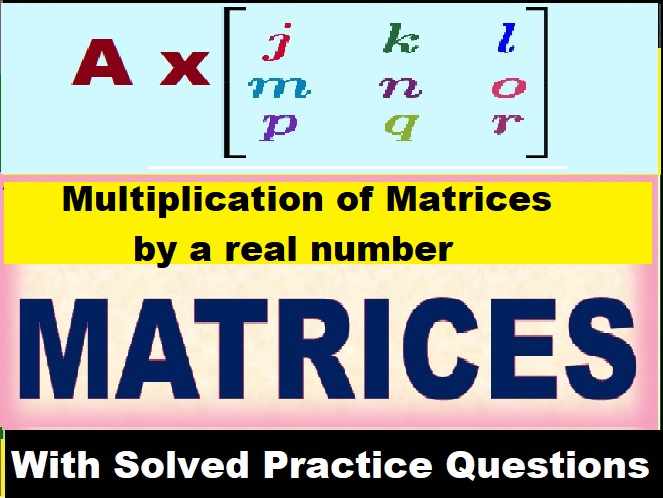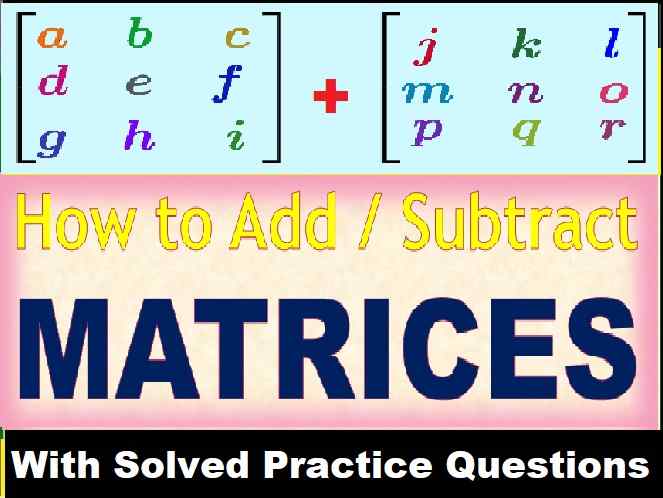
Linear Regression MCQs Type Questions with Answer for ISC Class 12 . These MCQs / Objective Type Questions is based on latest reduced syllabus according 2021-22 session on bifurcated pattern. Main motto of MCQ Type Question is cracking the next upcoming Sem-2 exam of council. Visit official website CISCE for detail information about ISC Class-12 Maths.
ISC Class 12 Linear Regression MCQs Type Questions with Answer
| Board | ISC |
| Class | 12th (XII) |
| Subject | Maths |
| Chapter | Linear Regression |
| Syllabus | on bifurcated syllabus (after reduction) |
| Session | 2021-22 |
| Bifurcated | Sem-2 |
| Topic | MCQs / Objective Type Question |
ISC Linear Regression MCQs for Class 12 Questions with Answers
Question 1: Which of the following statements is true about the regression line?
a. A regression line is also known as the line of the average relationship
b. A regression line is also known as the estimating equation
c. A regression line is also known as the prediction equation
d. All of the above
Answer: d. All of the above
Question 2: If the coefficient of determination is 0.81, the correlation coefficient
a. is 0.6561
b. could be either + 0.9 or – 0.9
c. must be positive
d. must be negative
Answer: b. could be either + 0.9 or – 0.9
Question 3: The correlation coefficient is used to determine:
a. A specific value of the y-variable given a specific value of the x-variable
b. A specific value of the x-variable given a specific value of the y-variable
c. The strength of the relationship between the x and y variables
d. None of these
Answer: c. The strength of the relationship between the x and y variables
Question 4: Which of the following statements is true about the correlational analysis between two sets of data?
a. The correlational analysis between two sets of data is known as a simple correlation
b. The correlational analysis between two sets of data is known as multiple correlation
c. The correlational analysis between two sets of data is known as partial correlation
d. None of the above
Answer: a. The correlational analysis between two sets of data is known as a simple correlation
Question 5: The relationship between number of beers consumed (x) and blood alcohol content (y) was studied in 16 male college students by using least squares regression. The following regression equation was obtained from this study:
!= -0.0127 + 0.0180x
The above equation implies that:
a. each beer consumed increases blood alcohol by 1.27%
b. on average it takes 1.8 beers to increase blood alcohol content by 1%
c. each beer consumed increases blood alcohol by an average of amount of 1.8%
d. each beer consumed increases blood alcohol by exactly 0.018
Answer: c. each beer consumed increases blood alcohol by an average of amount of 1.8%
Question 6: Regression modeling is a statistical framework for developing a mathematical equation that describes how
a. one explanatory and one or more response variables are related
b. several explanatory and several response variables response are related
c. one response and one or more explanatory variables are related
d. All of these are correct.
Answer: c. one response and one or more explanatory variables are related
Question 7: Which of the following statements is true about the arithmetic mean of two regression coefficients?
a. It is less than the correlation coefficient
b. It is equal to the correlation coefficient
c. It is greater than or equal to the correlation coefficient
d. It is greater than the correlation coefficient
Answer: d. It is greater than the correlation coefficient
Question 8: What is the meaning of the testing of the hypothesis?
a. It is a significant estimation of the problem
b. It is a rule for acceptance or rejection of the hypothesis of the research problem
c. It is a method of making a significant statement
d. None of the above
Answer: b. It is a rule for acceptance or rejection of the hypothesis of the research problem
Question 9: Which of the following statements is true about the level of significance?
a. In testing a hypothesis, we take the level of significance as 2% if it is not mentioned earlier
b. In testing a hypothesis, we take the level of significance as 1% if it is not mentioned earlier
c. In testing a hypothesis, we take the level of significance as 10% if it is not mentioned earlier
d. In testing a hypothesis, we take the level of significance as 5% if it is not mentioned earlier
Answer: a. In testing a hypothesis, we take the level of significance as 2% if it is not mentioned earlier
Question 10: In least squares regression, which of the following is not a required assumption about the error term ε?
a. The expected value of the error term is one.
b. The variance of the error term is the same for all values of x.
c. The values of the error term are independent.
d. The error term is normally distributed.
Answer: a. The expected value of the error term is one.
Question 11: Larger values of r² (R²) imply that the observations are more closely grouped about the
a. average value of the independent variables
b. average value of the dependent variable
c. least squares line
d. origin
Answer: c. least squares line
Question 12: In a regression analysis if SSE = 200 and SSR = 300, then the coefficient of determination is
a. 0.6667
b. 0.6000
c. 0.4000
d. 1.5000
Answer: b. 0.6000
Question 13: The coefficient of correlation
a. is the square of the coefficient of determination
b. is the square root of the coefficient of determination
c. is the same as r-square
d. can never be negative
Answer: b. is the square root of the coefficient of determination
Question 14: In regression analysis, the variable that is used to explain the change in the outcome of an experiment, or some natural process, is called
a. the x-variable
b. the independent variable
c. the predictor variable
d. the explanatory variable
e. all of the above (a-d) are correct
Answer: e. all of the above (a-d) are correct
Question 15: In the case of an algebraic model for a straight line, if a value for the x variable is specified, then
a. the exact value of the response variable can be computed
b. the computed response to the independent value will always give a minimal residual
c. the computed value of y will always be the best estimate of the mean response
d. none of these alternatives is correct.
Answer: a. the exact value of the response variable can be computed
Question 16: SSE can never be
a. larger than SST
b. smaller than SST
c. equal to 1
d. equal to zero
Answer: a. larger than SST
Question 17: A regression analysis between sales (in $1000) and price (in dollars) resulted in the following equation:
! = 50,000 – 8X
The above equation implies that an
a. increase of $1 in price is associated with a decrease of $8 in sales
b. increase of $8 in price is associated with an increase of $8,000 in sales
c. increase of $1 in price is associated with a decrease of $42,000 in sales
d. increase of $1 in price is associated with a decrease of $8000 in sales
Answer: d. increase of $1 in price is associated with a decrease of $8000 in sales
Question 18: In a regression analysis if r² = 1, then
a. SSE must also be equal to one
b. SSE must be equal to zero
c. SSE can be any positive value
d. SSE must be negative
Answer: b. SSE must be equal to zero
Question 19: In regression analysis, the variable that is being predicted is the
a. response, or dependent, variable
b. independent variable
c. intervening variable
d. is usually x
Answer: a. response, or dependent, variable
Question 20: The independent variable is used to explain the dependent variable in ________.
a. Linear regression analysis
b. Multiple regression analysis
c. Non-linear regression analysis
d. None of the above
Answer: a. Linear regression analysis
Question 21: Regression analysis was applied to return rates of sparrowhawk colonies. Regression analysis was used to study the relationship between return rate (x: % of birds that return to the colony in a given year) and immigration rate (y: % of new adults that join the colony per year). The following regression equation was obtained.
! = 31.9 – 0.34x
Based on the above estimated regression equation, if the return rate were to decrease by 10% the rate of immigration to the colony would:
a. increase by 34%
b. increase by 3.4%
c. decrease by 0.34%
d. decrease by 3.4%
Answer: b. increase by 3.4%
Question 22: If two variables, x and y, have a very strong linear relationship, then
a. there is evidence that x causes a change in y
b. there is evidence that y causes a change in x
c. there might not be any causal relationship between x and y
d. None of these alternatives is correct.
Answer: c. there might not be any causal relationship between x and y
Question 23: The original hypothesis is known as ______.
a. Alternate hypothesis
b. Null hypothesis
c. Both a and b are incorrect
d. Both a and b are correct
Answer: b. Null hypothesis
Question 24: If the coefficient of determination is equal to 1, then the correlation coefficient
a. must also be equal to 1
b. can be either -1 or +1
c. can be any value between -1 to +1
d. must be -1
Answer: b. can be either -1 or +1
Question 25: In regression analysis, if the independent variable is measured in kilograms, the dependent variable
a. must also be in kilograms
b. must be in some unit of weight
c. cannot be in kilograms
d. can be any units
Answer: d. can be any units
Question 26: The data are the same as for question 4 above. The relationship between number of beers consumed (x) and blood alcohol content (y) was studied in 16 male college students by using least squares regression. The following regression equation was obtained from this study:
!= -0.0127 + 0.0180x
Suppose that the legal limit to drive is a blood alcohol content of 0.08. If Ricky consumed 5 beers the model would predict that he would be:
a. 0.09 above the legal limit
b. 0.0027 below the legal limit
c. 0.0027 above the legal limit
d. 0.0733 above the legal limit
Answer: b. 0.0027 below the legal limit
Question 27: Which of the following statements is true about the type two error?
a. Type two error means to accept an incorrect hypothesis
b. Type two error means to reject an incorrect hypothesis
c. Type two error means to accept a correct hypothesis
d. Type two error means to reject a correct hypothesis
Answer: a. Type two error means to accept an incorrect hypothesis
Question 28: If the correlation coefficient is 0.8, the percentage of variation in the response variable explained by the variation in the explanatory variable is
a. 0.80%
b. 80%
c. 0.64%
d. 64%
Answer: d. 64%
Question 29: If the correlation coefficient is a positive value, then the slope of the regression line
a. must also be positive
b. can be either negative or positive
c. can be zero
d. can not be zero
Answer: a. must also be positive
Question 30: In a regression and correlation analysis if r² = 1, then
a. SSE = SST
b. SSE = 1
c. SSR = SSE
d. SSR = SST
Answer: d. SSR = SST
Question 31: If the coefficient of determination is a positive value, then the regression equation
a. must have a positive slope
b. must have a negative slope
c. could have either a positive or a negative slope
d. must have a positive y intercep
Answer: c. could have either a positive or a negative slope
Question 32: A fitted least squares regression line
a. may be used to predict a value of y if the corresponding x value is given
b. is evidence for a cause-effect relationship between x and y
c. can only be computed if a strong linear relationship exists between x and y
d. None of these alternatives is correct.
Answer: a. may be used to predict a value of y if the corresponding x value is given
Question 33: Regression analysis was applied between $ sales (y) and $ advertising (x) across all the branches of a major international corporation. The following regression function was obtained.
! = 5000 + 7.25x
If the advertising budgets of two branches of the corporation differ by $30,000, then what will be the predicted difference in their sales?
a. $217,500
b. $222,500
c. $5000
d. $7.25
Answer: a. $217,500
Question 34: Suppose the correlation coefficient between height (as measured in feet) versus weight (as measured in pounds) is 0.40. What is the correlation coefficient of height measured in inches versus weight measured in ounces? [12 inches = one foot; 16 ounces = one pound]
a. 0.40
b. 0.30
c. 0.533
d. cannot be determined from information given
e. none of these
Answer: a. 0.40
Question 35: Assume the same variables as in question 28 above; height is measured in feet and weight is measured in pounds. Now, suppose that the units of both variables are converted to metric (meters and kilograms). The impact on the slope is:
a. the sign of the slope will change
b. the magnitude of the slope will change
c. both a and b are correct
d. neither a nor b are correct
Answer: b. the magnitude of the slope will change
Question 36: If there is a very strong correlation between two variables then the correlation coefficient must be
a. any value larger than 1
b. much smaller than 0, if the correlation is negative
c. much larger than 0, regardless of whether the correlation is negative or positive
d. None of these alternatives is correct.
Answer: b. much smaller than 0, if the correlation is negative
Question 37: In regression, the equation that describes how the response variable (y) is related to the explanatory variable (x) is:
a. the correlation model
b. the regression model
c. used to compute the correlation coefficient
d. None of these alternatives is correct.
Answer: b. the regression model
Question 38: Which of the following statements is true about the null hypothesis?
a. Any wrong decision related to the null hypothesis results in two types of errors
b. Any wrong decision related to the null hypothesis results in one type of an error
c. Any wrong decision related to the null hypothesis results in four types of errors
d. Any wrong decision related to the null hypothesis results in three types of errors
Answer: a. Any wrong decision related to the null hypothesis results in two types of errors
–: End of Linear Regression MCQs Type with Answer for ISC Class 12 :–
-: also visit :-
- ISC Sem-2 Question Bank Class-12
- Sem-2 ISC Specimen Paper for Class-12
- ISC Class-12 Textbook Solutions ,Syllabus, Solved Paper
- Previous Year Question Paper for ISC Class-12
Please share with your ISC friends if it is helpful
Thanks


